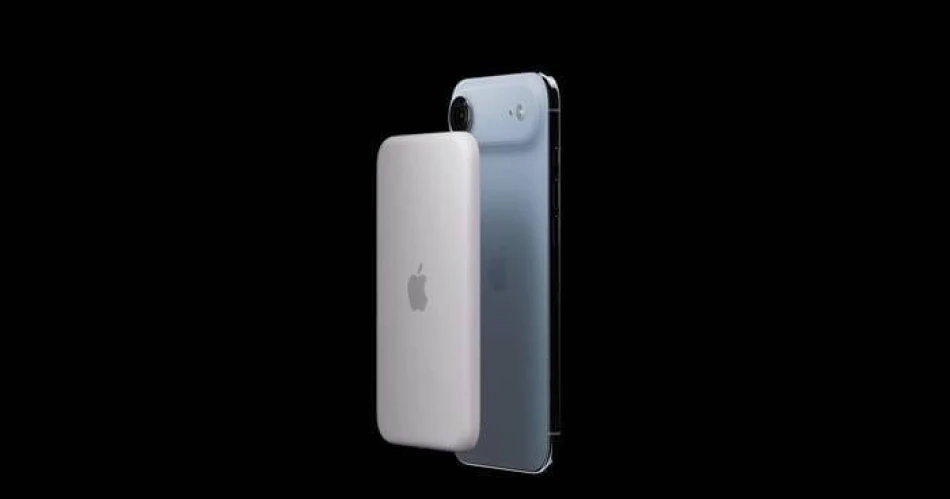
Unleash the Future: Apple Unveils iPhone 17 with Bigger Display, Improved Battery, and Faster Charging
Apple's iPhone 17 Signals Major Push Into AI-Powered Mobile Computing
Apple has unveiled the iPhone 17 with a 6.3-inch display and dedicated A19 chip designed specifically for artificial intelligence processing, marking the company's most aggressive move yet to integrate AI capabilities directly into consumer hardware. The launch represents Apple's strategic response to growing competition from Google and Samsung in the AI smartphone space, potentially reshaping how users interact with mobile devices.
Display Innovation Targets Premium Market Retention
The iPhone 17's 6.3-inch screen features Apple's new Ceramic Shield 2 technology, promising enhanced scratch resistance compared to previous generations. The inclusion of Always-On Display functionality brings Apple in line with Android competitors who have offered similar features for years, suggesting the company is prioritizing feature parity alongside innovation.
This screen size positions the iPhone 17 between the standard and Plus models of previous generations, potentially streamlining Apple's product lineup while maximizing display real estate for AI-powered applications and enhanced user interfaces.
A19 Chip Architecture Designed for AI Dominance
Processing Power Meets Machine Learning
The custom A19 processor represents Apple's commitment to on-device AI processing, reducing reliance on cloud-based services that competitors like Google heavily utilize. This approach aligns with Apple's privacy-focused strategy while potentially offering faster response times for AI-powered features.
The chip's design specifically supports "Apple Intelligence" capabilities, suggesting the company is building a comprehensive AI ecosystem that could extend beyond smartphones to other Apple devices, creating a more integrated user experience across the company's product portfolio.
Market Implications for AI Competition
Apple's dedicated AI chip strategy contrasts sharply with competitors who often rely on existing processors with AI acceleration. This could provide Apple with a significant performance advantage in AI applications, potentially justifying premium pricing in an increasingly competitive smartphone market.
Battery Technology Addresses Core User Concerns
The iPhone 17's charging capabilities promise 8 hours of video playback from just 10 minutes of charging, addressing one of the most common user complaints about smartphone battery life. This improvement could prove crucial as AI processing typically demands more power, potentially offsetting the increased energy consumption of the A19 chip.
Enhanced battery performance also supports Apple's strategy of encouraging longer device upgrade cycles, as improved longevity reduces user pressure to purchase new devices frequently, aligning with both environmental goals and premium pricing strategies.
Camera System Consolidates Dual Technologies
48-Megapixel Innovation
The iPhone 17's main camera combines dual camera technologies into a single 48-megapixel system, potentially reducing manufacturing costs while maintaining advanced photography capabilities. This approach could allow Apple to offer premium camera features across more price points in future product lines.
The integration of multiple camera technologies into one system reflects broader industry trends toward computational photography, where software processing becomes as important as hardware specifications in determining image quality.
Front Camera Enhancement Strategy
Improved front-facing camera capabilities target the growing social media and video calling markets, particularly important as remote work and content creation continue driving smartphone purchasing decisions. Enhanced portrait mode and color accuracy could help Apple maintain its reputation for superior mobile photography.
Strategic Positioning Against Industry Rivals
The iPhone 17's feature set positions Apple to compete directly with Samsung's Galaxy S series and Google's Pixel phones, both of which have emphasized AI capabilities and camera innovation. Apple's integrated approach to AI processing could provide competitive advantages in performance and privacy that justify premium pricing.
The timing of this launch also suggests Apple is accelerating product development cycles to keep pace with rapidly evolving AI technology, potentially signaling more frequent hardware updates as AI capabilities become central to smartphone differentiation.
Most Viewed News

 Omar Rahman
Omar Rahman






